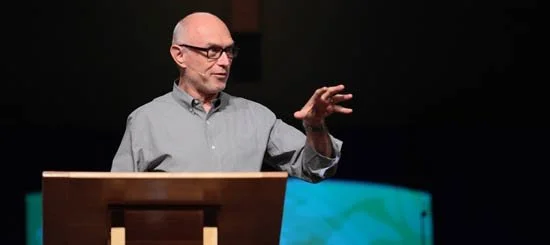Exclusivism and Pluralism
Since 1995, the Center for Public Justice has sponsored an annual Kuyper Lecture “to promote public consideration” of three key things:
Religion as a driving force — the deep, driving influence of competing religions in human society
Christ, the Light of the world — the comprehensive and inescapable claim of Jesus Christ on the world
An international Christian community — the strength and influence of international bonds of Christian community
Past lecturers include Mark Noll (author of The Scandal of the Evangelical Mind), James Skillen (author and former president of CPJ), and Michael Gerson (columnist and co-author of City of Man). This year the lecture was given by Yale professor Miroslav Volf on “A Public Faith: A Christian Alternative to Secular and Religious Political Exclusivism” at Gordon College. Volf’s thesis, which comes at about 3:15 in the video below, is this:
I believe that religious exclusivists indeed can embrace pluralism as a political project… not just out of pragmatic reasons because they need to achieve certain goals and under certain conditions it might be better for them to do so, but they can embrace pluralism as a political project from the deep resources of their faith itself.
Here’s the full video of the lecture, including responses afterwards.
Gordon College alumnus Laura Johnson interviewed Volf and summarized some of his key ideas, including some of the questions that prompted his focus on this topic:
When Miroslav Volf, Director of the Center for Faith & Culture at Yale University, taught his first session of a class on “Faith and Globalization,” he noticed that the issue of religious exclusivists, namely those who consider their faith be the one true faith, came up repeatedly. Teaching alongside former British Prime Minister Tony Blair, seven years to the day after the terrorists attacks of September 11, 2001, Volf noted a central theme that emerged from the class: “How can people of very different religious persuasions live under the same roof? How can they seek and arrange their common affairs together without coming to blows, without serious conflict?”
Another Gordon alum, Emily Boop, wrote a great response to the lecture for Capital Commentary:
Participating in a pluralist political order does not mean giving up deeply held convictions, but learning to live and work alongside those who have convictions—held just as firmly—that entirely contradict one’s own. Christianity is uniquely equipped to participate in such a system because our scriptures teach us to have a high view of other people who, like us, are made in the image of God. In Philippians 2:3, Paul clearly states, “Do nothing from selfish ambition or conceit, but in humility count others more significant than yourselves.” Cultivating the virtue of humility is key for Christian engagement in politics, for it is difficult to label anyone who approaches politics with humility as “intolerant.”
These questions of religious exclusivism and political pluralism are urgently important for all of us to consider, as world events continue to unfold in real time, driven by and impacting both. If we live with full confidence that our beliefs are true, we don’t need to be afraid of conversations with those whose beliefs differ. On the contrary, those who are unable to engage in these kinds of conversations with both humility and strength of conviction reveal, in my view, that they’re really not very confident in their beliefs. I have more to say about this in my earlier review of Volf’s important book on this topic.
What do you make of Volf’s thesis? Do you think it’s possible to hold exclusive religious claims and yet embrace pluralism as a political project?
